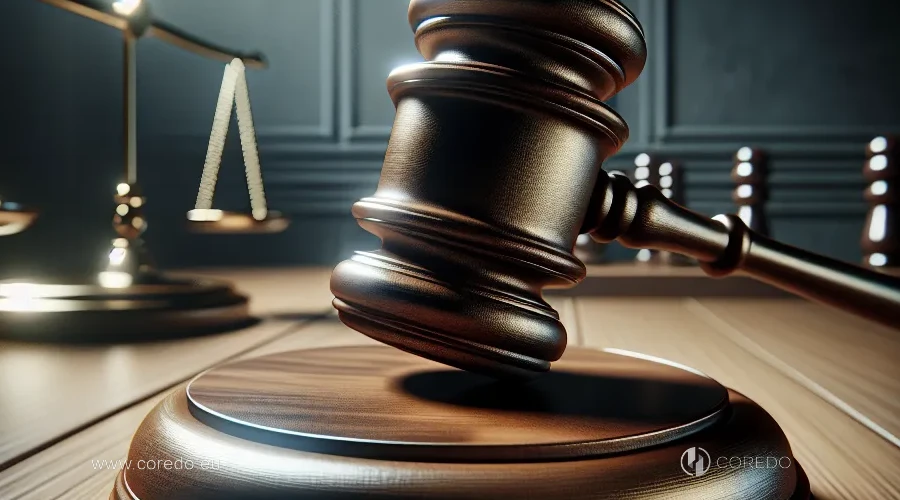Today, torrent network regulation in the EU: it’s not just a matter of copyright, but a complex issue of compliance, data protection, corporate responsibility, and even cybersecurity. Blocking torrent sites, monitoring IP addresses, Abmahnung notifications, internet traffic filtering, and GDPR requirements all shape a new reality for entrepreneurs and executives working in Europe, Asia, and the CIS.
In this article, I will thoroughly examine what is legally permitted in relation to torrents in Europe, how approaches differ across countries, what risks businesses bear, and which strategies for minimizing legal and reputational losses actually work in practice. If you want not only to avoid fines, but also to establish a transparent, sustainable policy in the field of digital content, I recommend reading to the end – you will receive not only a deep analysis but also concrete tools for implementation.
Legality of Torrents in the EU by Country

Torrent sites in Europe are regulated by multiple levels of legislation: national, supranational (EU), and international agreements (WIPO, TRIPS). The legality of torrents in the EU depends on the nature of the content and the purposes of use. It’s important to distinguish legal torrents in Europe (e.g., distribution of open-source or licensed content) and the use of P2P networks for downloading copyrighted materials without the permission of the rights holder.
Torrent Sites Allowed in the EU
In most EU countries, the principle applies: access to torrent sites in itself is not prohibited. However, downloading or distributing unlicensed content is a violation of the law. For example, in Germany, France, Italy, and the UK, there is a strict policy of blocking torrent sites by IP and DNS, and internet providers are obliged by agreements with rights holders to restrict access to major pirate resources. Meanwhile, in Spain and the Czech Republic, legislation allows the personal use of torrents for downloading content if it’s not for commercial gain, yet court practices increasingly view even such use as copyright infringement.
In practice, the COREDO team has implemented projects for company registration in the Czech Republic and Estonia, where clients faced questions about the legality of P2P network use for internal needs. Our experience showed: even if there is no formal ban, providers may block access to certain torrent sites at the request of rights holders, and companies can be held accountable for the actions of their employees.
Is it Legal to Use Torrents for Personal Use?
Personal use of torrents in Spain and some Eastern European countries is permitted if the downloaded content is not used for commercial purposes or distributed to third parties. Still, even in these jurisdictions, the court practice on torrents is becoming stricter: courts acknowledge the act of downloading as a violation if the rights holder proves damage. In particular, in Spain, the number of copyright lawsuits has increased in recent years, and fines for torrents in Germany remain among the highest in the EU.
Even considering these trends, additional attention should be given to the decisions of the European Court of Justice, which define the boundaries of permissible restrictions and practice at the EU level.
Restrictions and ECJ Practice
The European Court of Justice (ECJ) has repeatedly emphasized: downloading or distributing copyrighted content via torrent networks without permission is a violation, regardless of the file transfer method. International agreements (WIPO, TRIPS) and EU directives set minimum standards for intellectual rights protection, and ECJ case law establishes a uniform approach to user and provider responsibility.
In one of COREDO’s cases, a client from the UK managed to minimize risks thanks to the timely implementation of Notice-and-Takedown procedures and cooperation with rights holders, which helped avoid lawsuits and penalties.
Responsibility for Torrents and Fines

The question of responsibility for downloading torrents in Europe is among the most pressing for businesses. Copyright infringement through P2P networks is classified as a civil, and in some cases, a criminal offense. Court practice on torrents in the EU shows: fines for torrents in Germany, France, and the UK can reach tens of thousands of euros, and in some cases, lead to the blocking of corporate resources.
Fines for Torrents in Germany and the EU
Germany operates a system of Abmahnung, pre-trial notices of copyright infringement sent to users or companies whose IP addresses were recorded downloading unlicensed content. The fine for torrents in Germany can range from 800 to 5000 euros for a single episode, and in cases of repeated violations, the amount increases significantly. In other EU countries (e.g., France, Italy), copyright lawsuits often lead to access blocks or significant financial penalties.
The COREDO team has supported clients who received Abmahnung for torrents in Germany. The solution developed at COREDO included an immediate legal response, negotiations with rights holders, and reducing fine amounts through a lawyer: in some cases, we achieved a significant reduction of sanctions and avoided litigation.
Legal Responsibility of Businesses and Employees
Legal risks for businesses using torrents by employees include not only fines but also reputational losses and possible criminal liability in case of systematic violations. The company owner is responsible for organizing corporate policy on the use of P2P networks, and the IT department for monitoring and preventing illegal torrent use on work devices. COREDO’s practice confirms: a lack of clear internal regulations and Due Diligence procedures often leads to increased risks and costs for dispute resolution.
Abmahnung Court Notification: What to Do?
COREDO’s recommendation: do not ignore the notification; immediately consult a professional lawyer to assess the validity of the claim and develop a strategy to minimize losses. In some cases, it’s possible to reduce the fine amount and prevent further lawsuits through the implementation of Notice-and-Takedown procedures and a revision of corporate policy.
Blocking Torrent Sites: How to Bypass Restrictions

Blocking torrent sites in Europe is implemented in various ways: from traffic filtering and IP/DNS blocking to agreements with internet providers restricting access to pirate sites. In some countries (e.g., UK, France), such measures are enshrined in legislation, and providers are required to transparently report on blockages.
Blocking Torrent Sites in Europe
In the UK and France, torrent site blocking is implemented through court decisions and agreements with providers, who are obliged to filter traffic and restrict access to a list of prohibited resources. In the Czech Republic and Estonia, blocking is often targeted and applied at the rights holder’s request. In Spain, blocking torrent sites is less common; however, court practice is gradually tightening.
The COREDO team analyzed cases of clients facing sudden unavailability of file-sharing resources—the solution was to transition to legal platforms and implement alternative channels for digital content distribution.
VPN: Legal Risks and Bypassing Blocks
Using VPN to bypass torrent site blocks is a common practice, but from a legal perspective, it poses additional risks for businesses. In many EU countries, attempting to bypass restrictions using VPN may be considered an aggravating factor in copyright violations, and digital trace monitoring and user identification are becoming more effective thanks to cybersecurity technology advancements.
GDPR and IP Address Monitoring: How to Handle Data
IP address monitoring of torrent users in the EU is conducted by providers and rights holders to identify violations. Data processing must comply with GDPR requirements: transparent procedures, employee notification, and minimization of personal data storage. Violations of these requirements can lead to additional sanctions from regulators.
COREDO’s practice shows: implementing compliance procedures when working with torrents and regular auditing of corporate internet traffic not only reduces legal risks but also increases trust from partners and clients.
Compliance and Corporate Policy, How to Reduce Risks

Comprehensive compliance policy is a key tool for minimizing the legal and reputational risks associated with torrent use in business. Internal regulations, employee training, appointing monitoring and due diligence officers allow building a transparent and sustainable digital risk management system.
Internal Compliance Policy for Business
Developing corporate policy for P2P network use starts with auditing current practices, assessing risks, and implementing clear regulations. It’s important to determine which types of content and platforms are allowed, what control and monitoring measures are applied, how employee training is conducted, and how incidents are responded to.
How to Assess and Reduce Risks
| Risk | Minimization Measure | Expected Effect (ROI) |
|---|---|---|
| Fines for Downloading Torrents | Implement Corporate Policy, Training | Reduction of Fines, Reputation Protection |
| Abmahnung Notifications | Timely Legal Reaction, Lawyer | Reduction of Fine Amount |
| Data Leakage During Monitoring | GDPR Compliance, Procedure Transparency | Avoid Sanctions, Trust |
| Reputation Loss | Use Legal Platforms | Growth of Partner Trust |
COREDO’s practice confirms: assessing ROI from implementing legal platforms and compliance procedures not only reduces costs for dispute resolution but also increases business competitiveness in the international market.
Regulation in Asia and Africa: Comparison
In Asian countries (e.g., Singapore, South Korea) and Africa, approaches to torrent network regulation may differ significantly from European ones. In Singapore, there is strict control over copyright violations, and blocking torrent sites is carried out at the request of rights holders and government bodies. In South Korea, internet traffic filtering technologies and copyright lawsuits are actively applied. In some African countries, regulation is less formalized, although international agreements (WIPO, TRIPS) are gradually incorporated into national legislation.
The COREDO team has supported clients in entering Asian markets, where particular attention is paid to due diligence and risk assessment of P2P network use, as well as adapting corporate policy to local requirements.
Legal Alternatives to Torrents for Business

Modern legal platforms for transmitting large files and digital content distribution allow completely abandoning torrents in a corporate environment. This not only reduces legal risks but also ensures process transparency, protection of intellectual rights, and compliance with international licensing standards.
Platforms for Transmitting Large Files
Effective legal alternatives to torrents for business include licensed cloud services (Google Drive, Dropbox Business, WeTransfer Pro), corporate digital distribution systems (Microsoft OneDrive, Box), as well as specialized platforms for transmitting large files with compliance and encryption support. Legal content distribution through such services complies with GDPR requirements, international agreements, and cybersecurity standards.
Economic Efficiency of Legal Platforms
ROI evaluation of implementing legal platforms instead of torrents includes analyzing direct and indirect costs: reducing fines, decreasing time spent resolving disputes, increasing partner and client trust, and improving business process transparency. COREDO’s practice confirms: investments in legal services pay off by preventing reputational and financial losses and optimizing internal processes.
Practical Recommendations for Business
Using torrents in Europe is a high-risk zone for business. Responsibility for downloading torrents, fines for torrents in Germany, court practice on torrents, and compliance requirements create a new reality for companies operating in the EU, Asia, and the CIS.
Typical Risks and Mitigation Methods
| Risk | Minimization Measure | Expected Effect (ROI) |
|---|---|---|
| Fines for Downloading Torrents | Implement Corporate Policy, Training | Reduction of Fines, Reputation Protection |
| Abmahnung Notifications | Timely Legal Reaction, Lawyer | Reduction of Fine Amount |
| Data Leakage During Monitoring | GDPR Compliance, Procedure Transparency | Avoid Sanctions, Trust |
| Reputation Loss | Use Legal Platforms | Growth of Partner Trust |
Checklist for Department Leader
- Conduct an audit of P2P/torrent use in the company
- Develop and implement an internal policy for torrent use
- Appoint someone responsible for compliance and monitoring
- Ensure employee training
- Implement legal file-sharing services
- Ensure GDPR compliance when monitoring traffic
- Prepare standard procedures for responding to Abmahnung notifications
Next: Answers to frequently asked questions.
Brief Answers to Popular Questions
A full ban is in effect in Germany, France, the UK; in Spain and the Czech Republic, limited personal use is allowed, but court practice is becoming stricter.
Risks include fines, lawsuits, reputation losses, and possible criminal liability.
Introduce clear regulations, appoint responsible persons, train employees, use only legal platforms, and conduct regular audits.
Use licensed cloud services and specialized platforms with compliance and encryption support.
Losses include fines, resource blocking, loss of partner and client trust, and restrictions on working in international jurisdictions.
COREDO practice confirms: timely implementation of a comprehensive compliance policy, transitioning to legal platforms, and regular audit processes are the best strategies for minimizing risks and increasing business resilience amid tightening regulation of torrent sites in Europe and beyond.